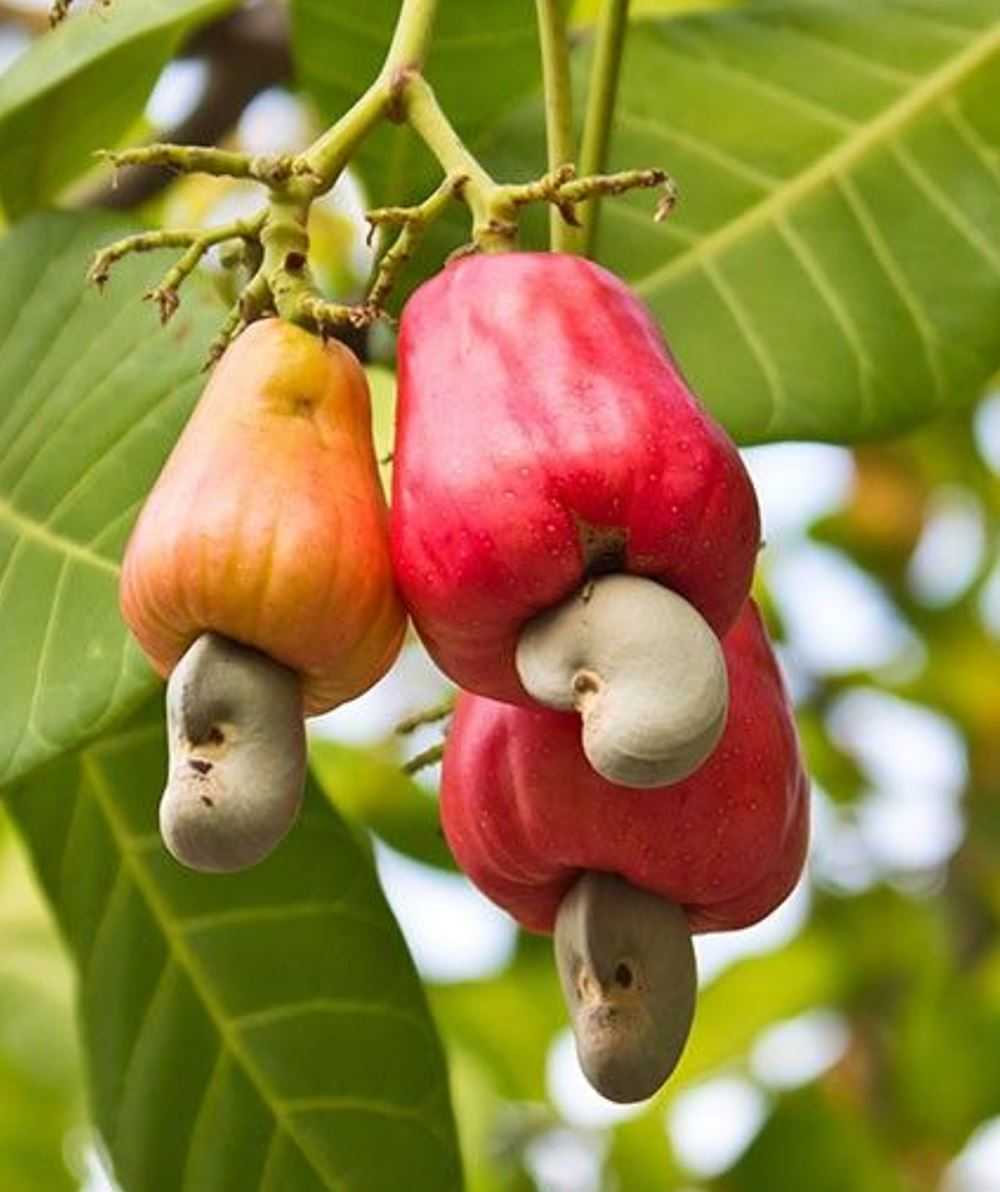Cashews are a popular type of nut that is loved by many for their unique shape, creamy texture, and delicious taste. These kidney-shaped nuts are native to Brazil but are now grown in tropical regions around the world. Cashews are not only a tasty snack but also offer a range of health benefits.
Species or Types of Cashew
The cashew tree, scientifically known as Anacardium occidentale, belongs to the Anacardiaceae family and is native to Brazil. It is cultivated for its cashew nuts and cashew apples. There are different species and varieties of cashew trees, but the most commonly cultivated and commercially important species is Anacardium occidentale. This species is widely grown in tropical regions around the world for its edible nuts and fruits.
While Anacardium occidentale is the primary species cultivated for cashew nuts, there are other related species within the Anacardium genus. Some of these species include:
- Anacardium giganteum: This species is native to South America and is known for its large size compared to Anacardium occidentale. It produces similar edible nuts and fruits.
- Anacardium humile: Also native to South America, this species is commonly referred to as the Monkey Nut tree. It produces small, kidney-shaped nuts that are also edible.
- Anacardium excelsum: This species is found in Central and South America and is known for its tall stature and large leaves. It produces edible nuts similar to Anacardium occidentale.
While Anacardium occidentale remains the most widely cultivated species for cashew nuts, these related species within the Anacardium genus also contribute to the diversity of cashew trees in different regions. Each species may have unique characteristics in terms of nut size, flavor, or growth habits, adding to the richness of the cashew tree family.
Uses of Cashew
Cashews have a wide range of culinary and non-culinary uses due to their unique taste, texture, and nutritional properties. Here are some common uses of cashews:
- Snacking: Cashews are often enjoyed as a delicious and nutritious snack on their own, either raw or roasted and salted. They can also be included in trail mixes or nut mixes for a satisfying on-the-go snack.
- Cooking and Baking: Cashews are a versatile ingredient in both savory and sweet dishes. They can be used to add creaminess to vegan sauces, soups, and dips. Cashew butter is a popular alternative to peanut butter and can be spread on toast or used in baking recipes.
- Dairy Alternatives: Cashews can be used to make dairy-free alternatives such as cashew milk, cashew cream, and cashew cheese. These products are suitable for individuals with lactose intolerance or those following a vegan diet.
- Nutritional Boost: Cashews can be ground into a flour or meal and used in gluten-free baking recipes. They can also be sprinkled on salads, yogurt, or oatmeal for added crunch and nutrition.
- Garnishing: Cashews can be chopped or crushed and used as a topping for various dishes such as salads, stir-fries, curries, and desserts. They add a crunchy texture and nutty flavor to the dish.
- Nutritional Supplements: Cashew nuts can be processed into cashew butter or cashew oil, which can be used as a source of healthy fats and nutrients in smoothies, dressings, or as a cooking oil.
- Traditional Medicine: In some cultures, cashews are believed to have medicinal properties and are used in traditional herbal remedies for ailments such as stomach issues, skin conditions, and even snake bites. However, it’s essential to consult a healthcare professional before using cashews for medicinal purposes.
- Industrial Uses: Cashew nut shell liquid (CNSL), a byproduct of cashew processing, is used in various industrial applications such as in the production of paints, varnishes, and insecticides.
Health Benefits
- Heart Health: The healthy fats found in cashews, such as oleic acid, have been linked to improved heart health by reducing bad cholesterol levels and lowering the risk of heart disease.
- Weight Management: Despite being calorie-dense, cashews can aid in weight management due to their high fiber and protein content. These nutrients help keep you feeling full and satisfied, reducing the likelihood of overeating.
- Bone Health: Cashews are a good source of minerals like magnesium, phosphorus, and copper, which are essential for maintaining strong and healthy bones.
- Antioxidant Properties: Cashews contain antioxidants like vitamin E and selenium, which help protect cells from damage caused by free radicals and oxidative stress.
Disadvantages of Cashew
While cashews are nutritious and delicious, there are a few potential disadvantages associated with their consumption that individuals should be aware of. Here are some common disadvantages of cashews:
- Allergies: Cashew nuts are one of the tree nuts that people commonly have allergies to. Cashew allergies can range from mild reactions like itching and hives to severe symptoms such as swelling, difficulty breathing, and anaphylaxis. Individuals with tree nut allergies should avoid cashews and products containing cashew ingredients.
- Oxalate Content: Cashews are relatively high in oxalates, which are compounds that can bind to calcium in the body and potentially contribute to the formation of kidney stones in susceptible individuals. People prone to kidney stones may need to moderate their intake of high-oxalate foods like cashews.
- Calorie Density: Cashews are calorie-dense nuts due to their high fat content, which can contribute to weight gain if consumed in excess. Portion control is essential when enjoying cashews as a snack or ingredient in dishes to avoid consuming an excessive number of calories.
- Fungal Contamination: Cashew nuts grow in a shell attached to a “cashew apple,” and improper processing can lead to fungal contamination on the nuts. Aflatoxins, produced by certain molds, can develop on cashews if they are not stored or processed correctly. Aflatoxins are toxic compounds that can be harmful if ingested in large amounts. Proper storage and processing methods are crucial to prevent fungal contamination.

